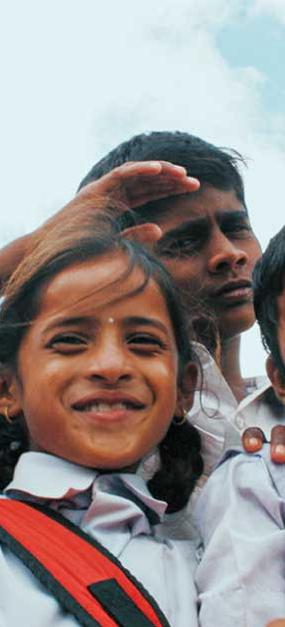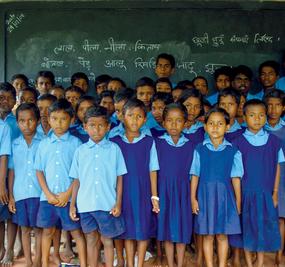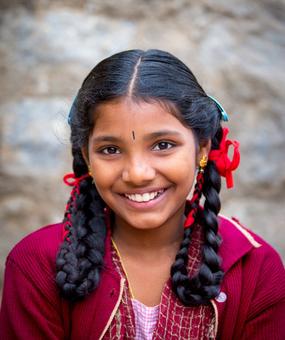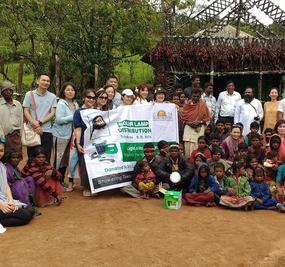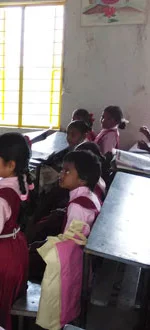The words ‘government school’ in India, conjure up an image of a humble teaching institution with basic necessities. But a government school located in Wablewadi, Pune, is a class apart.
Funded by the Art of Living’s partner organization, the International Association of Human Values (IAHV), in association with Bank of New York Mellon, this school with its eco-friendly classrooms has the infrastructure to run a unique hi-tech curriculum that trains its students in robotics, sound engineering, coding, photography, and 3-D animation, apart from sports, music, and languages. The school is also India’s first zero-energy school, where 8 classrooms are zero-energy classrooms and the rest are powered by solar energy. IAHV has received the Corporate Social Responsibility impact award for their contributions in the development of this school.
The school is currently teaching over 600 students who come from 25 nearby villages and are mostly children of small-scale farmers. Siddhi, a student from this school, has created a model that cuts water usage by 90% – her model has been implemented in the school. Vedant, another student, has made a vacuum machine, an LED bulb, a voting machine, and a smart dustbin which opens whenever an object comes near it. He, along with his classmates, is now working on making a model of a Wi-Fi car. “Compared to the West, our country lacks inventions. I want to contribute to my country with new inventions,” says Vedant.
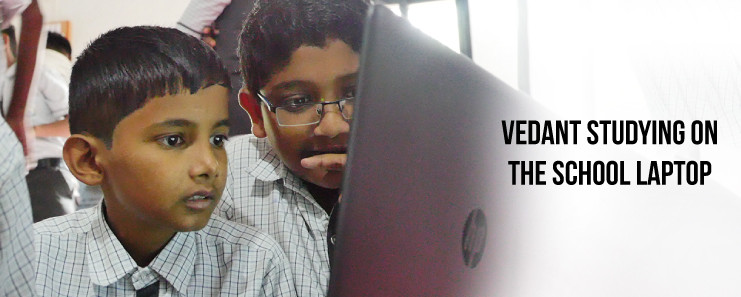
Based on their interest, the students pursue one of many technical skills offered in this school. Students are excelling in their chosen technical skills. Recently, Vedant was a part of the school team that won the fourth prize in the worldwide First Tech Challenge Robotics Competition. And the students are also acing state board exams. In the recent 2019 exams, 47 students from the school secured state merit scholarship. No wonder, the school has a waitlist of 3,500 students waiting to be enrolled in it.
Apart from these technical abilities, the students are also taught self-reliance, humility, and rather disparate skills like farming. For example, Vedant, along with his schoolmates, begins his day cleaning the premises of classrooms with brooms and mopping sticks. As a mark of their respect and gratitude, the school students bow down and touch the steps of their school as soon as they enter the school every morning.
The curriculum of the school, designed by the headmaster, Dattatray Ware, prepares students to solve both everyday and future problems. As a teacher, he observed over time that traditional learning stifles a child’s originality. Thus, he wanted to create a curriculum where the children had the freedom to choose to study their interests. “We don’t provide these kids with ready made solutions. So, they solve problems on their own. They have made models on their own, using digital platforms like Youtube,” says Dattatray. That is when the idea of Project Avishkar, a skill-based curriculum offering ten modules, was born.
From 32 students in 2012, the school has grown to 650 students in a span of seven years. Struck with the growth of their children, many parents voluntarily help with the needs of the school. Sachin Wable, a parent, remarks, “The school has improved my son’s personality and intelligence. We have a deep connection with the school and all villagers want to contribute something to it. Even though I have health issues, I voluntarily help in the school’s administrative work.” Some parents have helped to construct new classrooms. Others have donated land. As a result, the school that started between small walls of 0.125 acres has now spread across more than three acres.
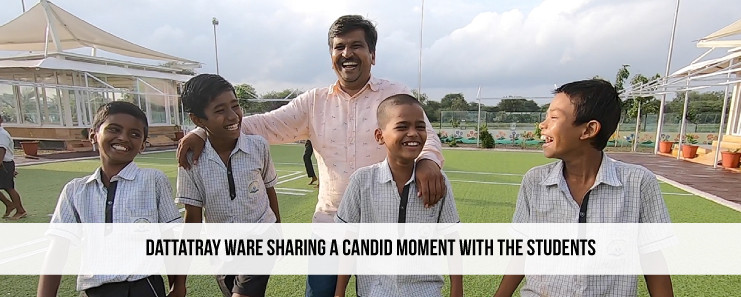
Dattatray hopes that this educational methodology is adopted by all government schools in India. In this regard, he arranges for visits of education experts from all across the globe. During one such visit, renowned scientist, Vijay Bhatkal, termed this school his ‘dream school’.
Dattatray’s ends by saying that his revolutionary idea for this dream school were brought to bear by his love for students and the generous funding facilitated by IAHV under the guidance of its visionary founder, Gurudev Sri Sri Ravi Shankar.



